Endgame training with the ChessBase Magazine
Endgames can be tricky - which offers good chances to save or gain a point if you know what you are doing. It will all go in vain if you don't convert a winning position or know how to draw, the entire accurate play in opening and middle game will be moot if you are finish it. Most of the time when we reach endgame, we have less time to think. So it is better to know the theory as much as possible to save time over the board and make the most out of the time pressure and crunch endgames. ChessBase and the ChessBase Magazine help you to know what you should do and what you can do in the endgame. Photo: ChessBase
Endgame Training with the ChessBase Magazine
The Endgame Column in the ChessBase Magazine offers a lot of instructive and interesting material about the endgame. This helps if you want to improve your endgame skills. For example, let's have a look at the Endgame Column in ChessBase Magazine #189.
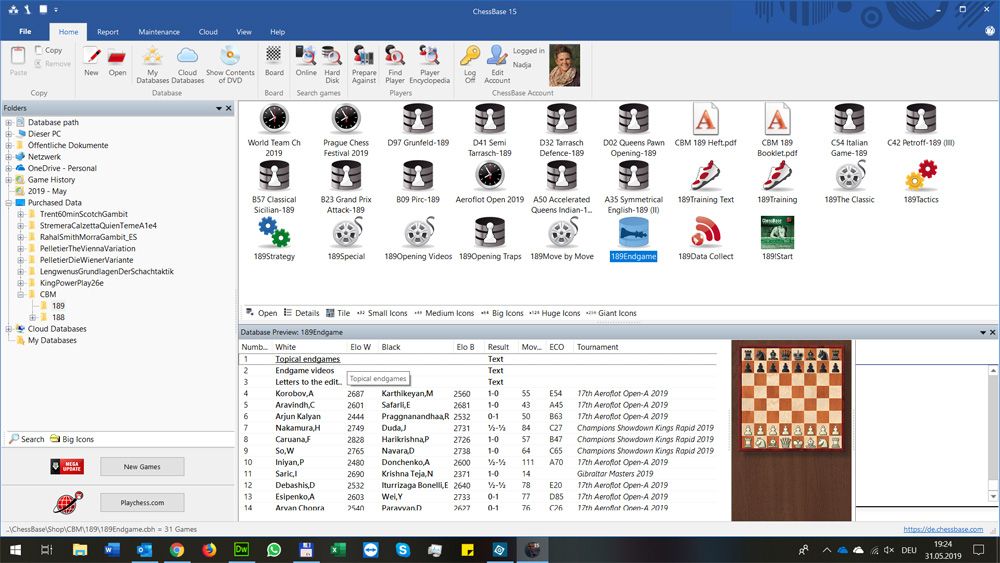
After opening the issue a list of games appears. Open Topical Endgames.
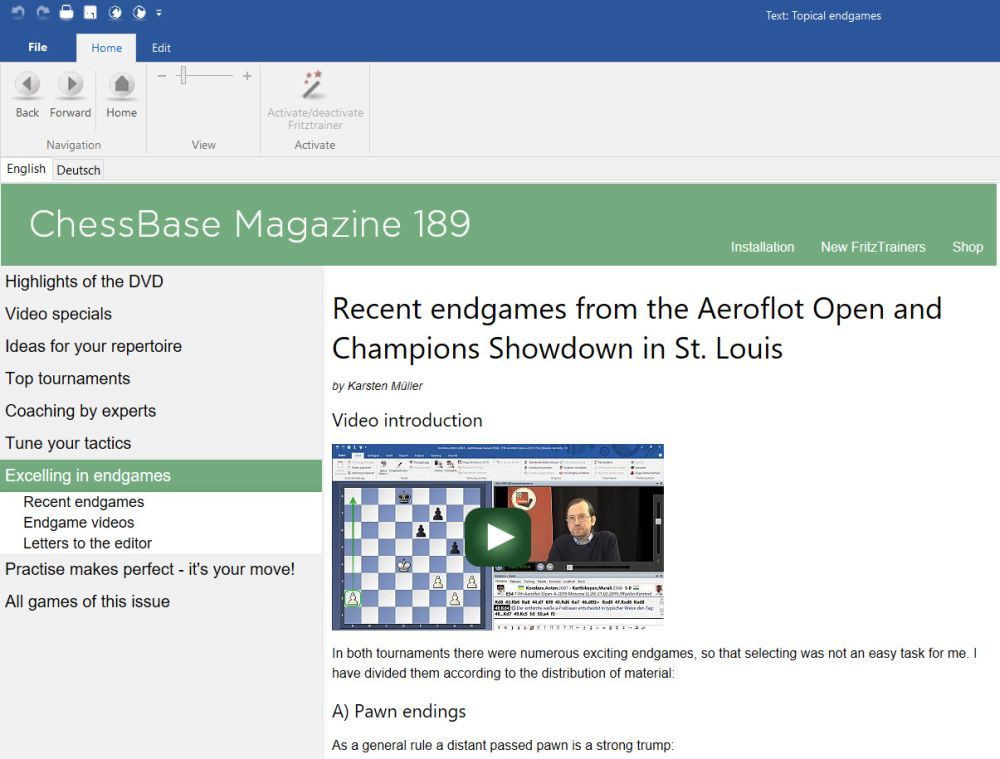
The Endgame Column in CBM #189 contains seven deeply annotated and analysed endgames.
Let's take a look at one of these endgames to illustrate how you can use this material for training:
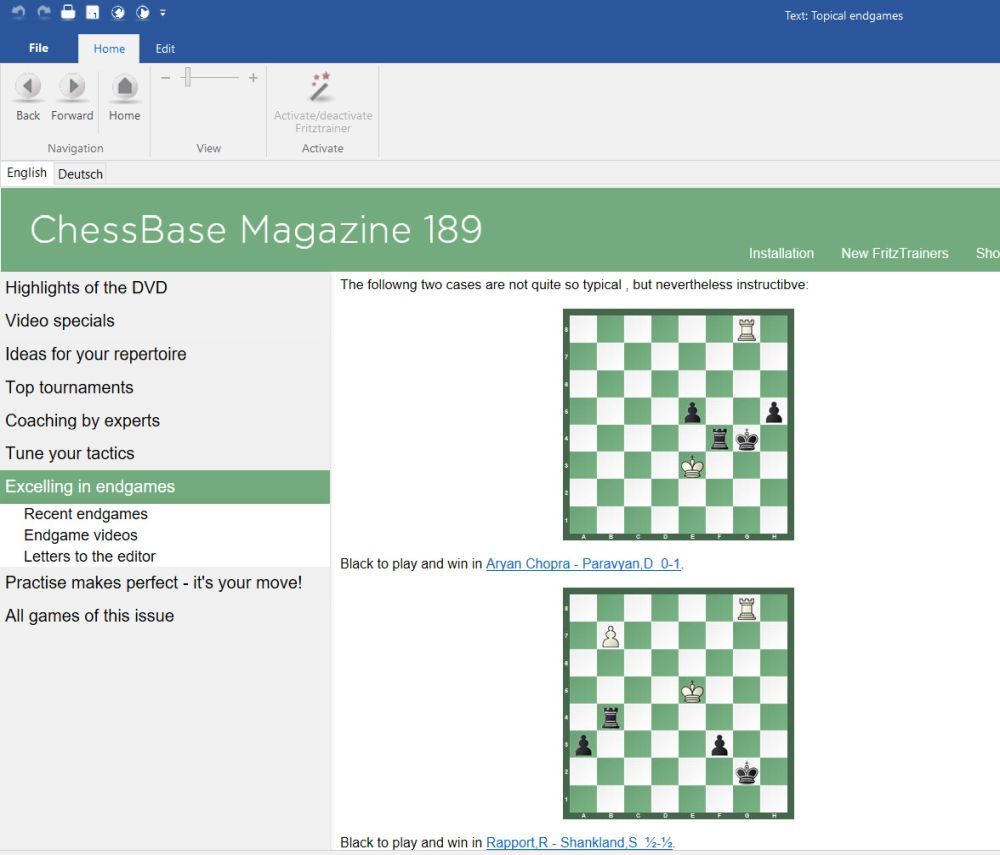
The link to the game - in our example "Aryan Chopra - Paravyan D 0-1" opens the endgame.
Training:
Step 1 To get a first idea of the endgame you can now change to the replay mode:
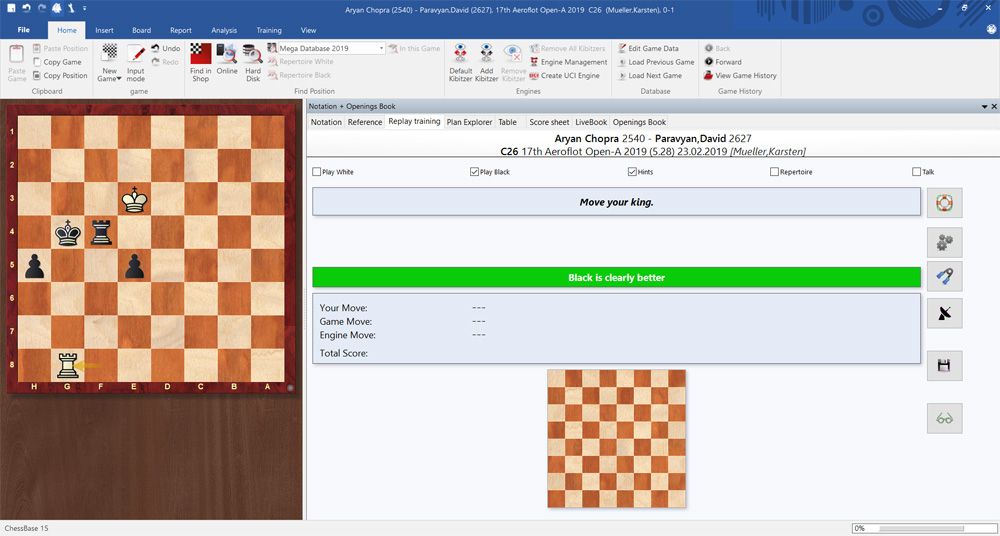
The replay mode gives you an idea how well you would play this particularly endgame. Click on the disk symbol to the right to save your replay training.
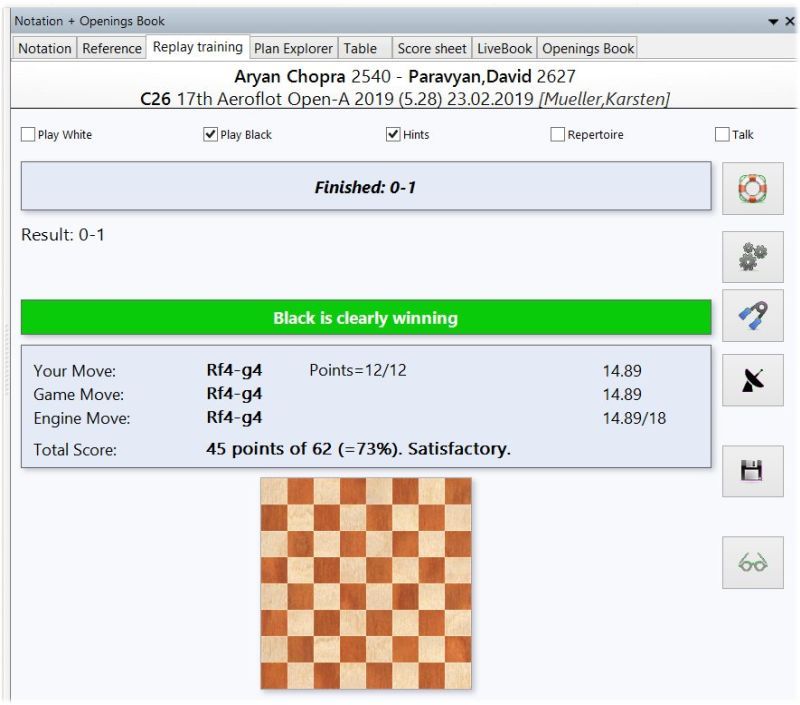
It is recommended to save the replay training in a special database to make it easier to check and to repeat your training. Go to File -> Save Game As and select the database in which you want to save your replay training:
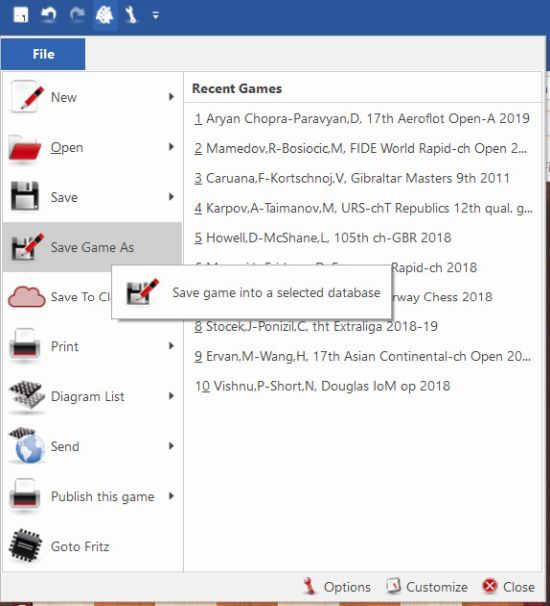
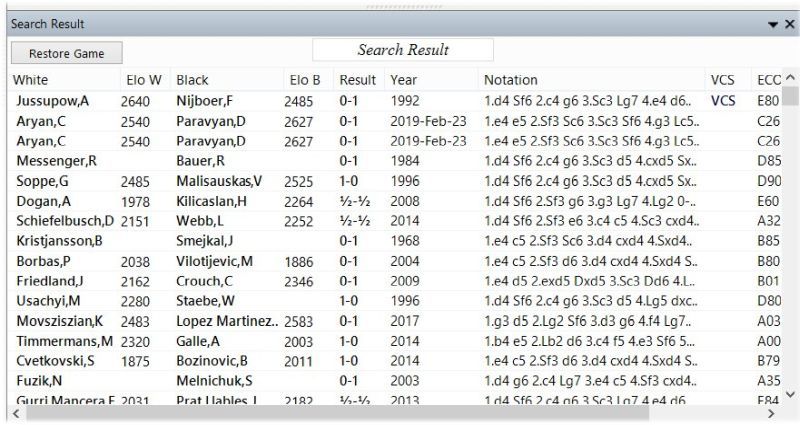
Training: Step 2
You can now check your efforts by reading the annotations and by checking the endgame with an engine. This will give you a better feeling for the endgame.
When working with an engine it helps to use the Endgame Turbo 5. After all, the engine simply plays the endgame better if it can access the endgame tablebases in the Endgame Turbo. If you have no tablebases of your own, use Let’s Check during your analyses: Let's Check accesses the tablebases and will give you valuable hints.
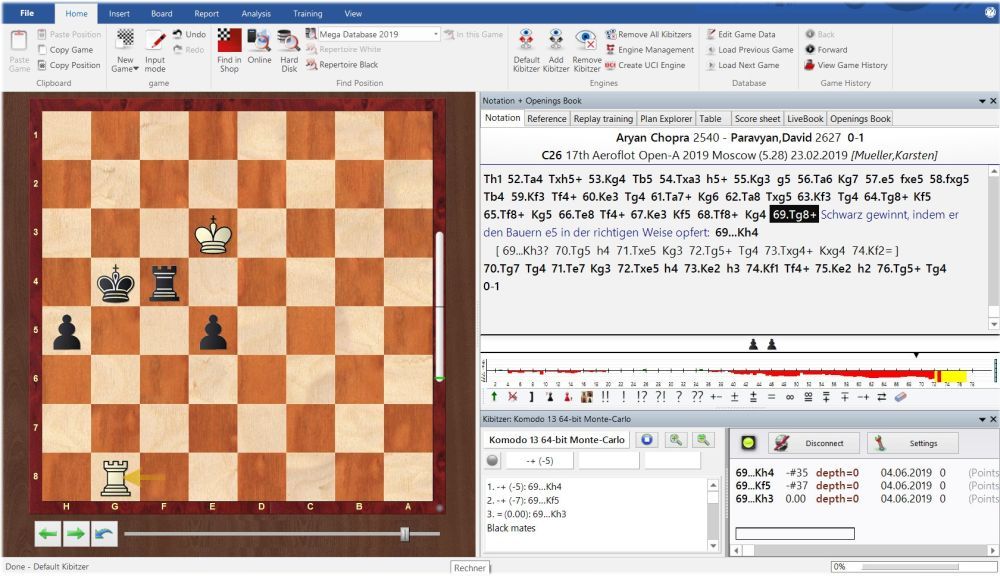
Training: Step 3
To understand a certain endgame better you might want to compare it with similar endgames. go to a particular position in the endgame and then select Report -> Similar Endgames.

The program now searches in your reference database for games with the same material distribution, similar pawn structures, and similar piece constellations. The program sorts these games according to their similarity to your original position:
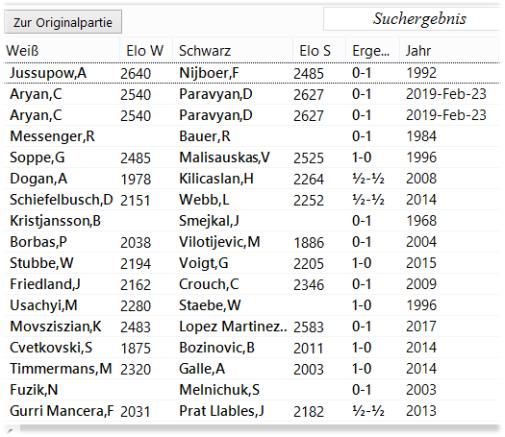
If you open one of these games the program immediately jumps to the "critical" position.
Training: Step 4
"Practice makes perfect" - and therefore you might want to practice the endgames you studied in practice.
Here, the ChessBase 15 Fritz-Online App helps. You can adjust the playing strength of this training partner who never complains, no matter how often it has to defend the weaker side.
Go to the endgame position you want to practice. Now go to Training and Play Out Against Fritz:

You are connected to Fritz-Online and you can get ready for playing the training position (maybe you have to turn the board with Ctrl+F).
Then you should adjust the strength of your sparring partner. The more confident the higher the level you can choose. Then you can start to play the position. These are training games and you can take moves back and try other ideas. Of course, you can save these training games (if you have a Premium Account the games are saved automatically) to analyse them later.
Have fun!
About the Author

Martin Fischer, born 1962, is a ChessBase staffer who, among other things, organizes and holds seminars throughout Europe and helps administer playchess.com.






















